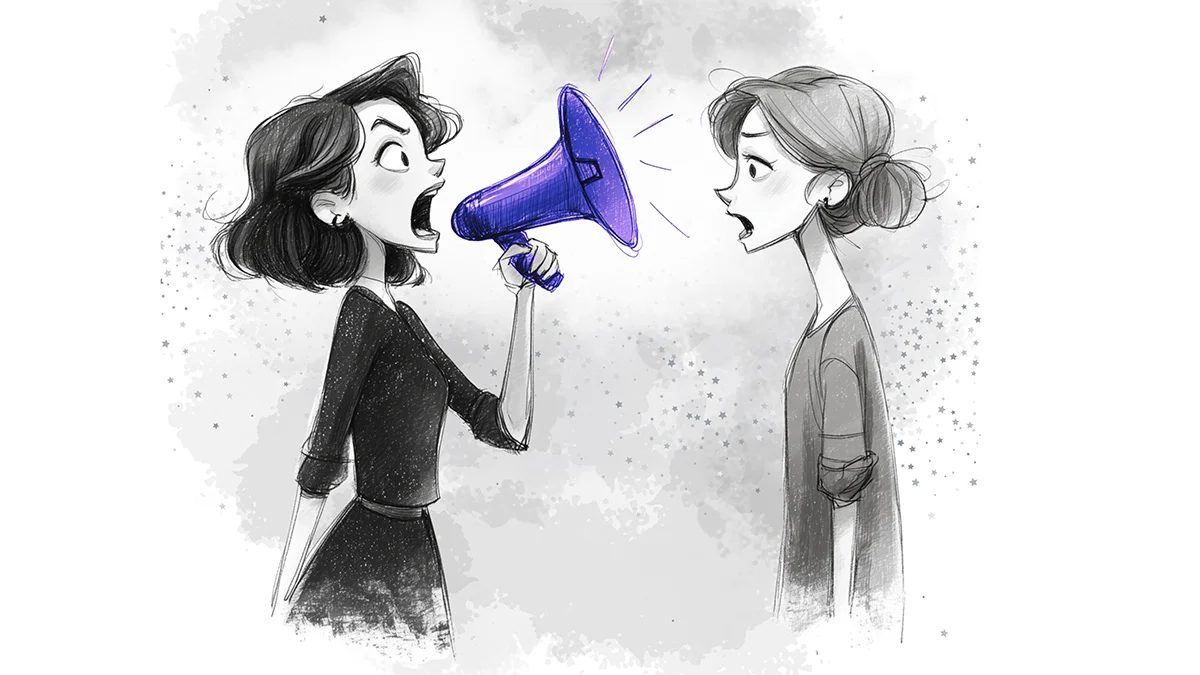Sometimes the reason we help isn’t for the other person, but for ourselves. And sometimes, the most meaningful help isn’t in what we do, but in what we choose not to.
There was a season in my life when everything felt like too much. I was emotionally drained, spiritually disoriented and holding myself together with whatever scraps of energy I could find. A friend reached out to say she wanted to “be there” for me and I was thankful. The idea of not being alone felt comforting.
She offered to come over and bring dinner. Wonderful. But somewhere between offer and arrival, things changed. Instead of bringing food over, she decided she wanted to cook for me. She had found a recipe, gone shopping and showed up ready to create something nourishing “for body and soul”. I could see her excitement. Her joy. The way she imagined two gal pals cooking up a storm, like a Hallmark movie.
When help leads to guilt
When someone cooks in your kitchen, it’s not just the food. It’s the clearing of the counters, the pulling out of equipment I didn’t want to use—the rice cooker, the food processor, the whatever—the digging for condiments and the washing up after. When you’re already overwhelmed, even the thought of that can feel like a quiet avalanche.
I didn’t want to cook. I just wanted to eat, then sit on the couch and be a potato. I tried to counter, saying I’d prefer takeaway. But she was already in helper mode. She wanted to give something meaningful. I didn’t want to be ungrateful and so I stayed quiet.
When she departed, I was left with a sink full of dishes, half-used groceries I had no energy to use up and a lingering sense of guilt.
Guilt for not being more assertive.
Guilt for not feeling more grateful.
Guilt for being resentful toward someone who genuinely meant well.
Guilt for feeling that her care, her effort, had become a burden.
Her help had come from love, but it had also come with assumptions. I didn’t have the strength, in that moment, to correct her version of care. I know she meant well. She wasn’t trying to make things harder. She wanted to show love, to be helpful, to do something kind.
Yet, I didn’t need all that. I needed something simpler. Less involved. Less performative. And more importantly, I needed her to listen to what I had said I needed and respect that.
Presumptuous care
There can often be a tension when someone offers support not based on what the other person wants or can receive, but based on what they feel compelled to give. I call it presumptuous care. It’s care that assumes closeness equals access. That effort automatically means impact. That good intentions are enough.
Sometimes it sounds like this:
- “Because I care about you, I know what’s best for you.”
- “If you don’t like it, that’s your problem, not mine.”
- “I’m just trying to help—you should be grateful.”
But real care isn’t just about intent. It’s also about curiosity. It’s also about consent.
It’s not about how close we are or how much history we share; it’s about whether the help is welcome right now.
Of course, as much as we may have experienced presumptuous care from others, we’re likely guilty of having given it too. Not out of malice, but out of habit. Out of love. Out of a sincere desire to do the right thing—or at least, what we believed was the right thing in the moment.
We explore this idea of presumptuous care in the podcast below.
Why we feel compelled to help
Helping is often framed as a virtue and for good reason. We are wired for connection. Neuroscience research shows that when we help others, our brains release oxytocin, dopamine and serotonin—chemicals associated with trust, bonding and pleasure. This “helper’s high” reinforces prosocial behaviour and makes us more likely to do it again. Psychologist Adam Grant describes this as having a “giver” orientation: People who find meaning and motivation through generosity. At its best, helping connects us to others and gives us a deeper sense of purpose.
Contrary to how Maslow’s hierarchy is often taught, helping others does not require us to have all our own needs perfectly met first. The familiar pyramid we all saw in school textbooks is actually a simplified and distorted version of what Maslow intended. Later in his career, he introduced a sixth level—self-transcendence—which reflects the ability to rise above the self and find meaning through service, spirituality or creativity.
In other words, people can be deeply generous even in the middle of their own struggles. We’ve seen that: Caregivers who are grieving but still show up for others. Parents who pour love into their families while carrying invisible emotional loads. Strangers who extend kindness even when they have little to spare.
So helping, in itself, is not the problem. It is beautiful. It is human. Often, it is sacred.
But like many good things, it can get tangled.
When help becomes about helping
In faith communities, we are taught that love is sacrificial, that care means going the extra mile, that helping others—even when it costs us—is what a “good” Christian looks like.
There is beauty in that, but without nuance, it can create unspoken pressure. We don’t just help because we want to. We help because we think we should. Because we were taught that being good (or spiritual, or worthy) means saying yes.
With that kind of motivation, over time, helping can turn into a reflex, then into a performance and eventually, into a role we feel responsible to play. That is when help begins to shift. It becomes less about care and more about identity. Less about the other person and more about us.
That’s where it gets complicated. Because sometimes, what feels like the right thing is actually being shaped by something else:
- The discomfort of watching someone struggle
- A desire to feel useful, needed or irreplaceable
- Internalised beliefs that good people always say yes
- The fear of being perceived as selfish, unloving or cold
- An identity built on being “the strong one” or “the one who always shows up”
These inner drivers can feel noble, even urgent. But left unexamined, they quietly shift our care away from the other person and back onto ourselves.
Helping without harming
This doesn’t mean we should stop helping. Help is still good. It is still necessary. It can still be one of the most meaningful ways we show up for one another. However, even when there’s connection, even when there’s love, help that isn’t wanted can quietly become pressure. Help that carries expectation stops feeling like a gift.
Maybe it is less about how much we do and more about how we offer it. Real care asks us to pause. To ask before assuming. To listen, even if we already think we know. To be willing to slow down, soften our certainty and offer help in a way that can actually be received.
Before we jump in to offer advice or to help, we can try asking ourselves:
- What’s really driving my need to help?
- Am I offering this because they asked or because I assumed I knew what they needed?
- Am I stepping in to meet their need or to soothe my own discomfort?
- Am I being generous or am I looking for a role to play?
- If they say no to my help, can I respect that or will I take it personally?
This kind of care is not performative. It does not rely on effort to prove love. It does not tie value to how much someone appreciates what we’ve done. It is not afraid to hear “no”. It does not demand compliance or gratitude. It creates space for the other person to exist fully, without pressure to make us feel good for trying.
That kind of help may be quieter. It may go unseen. It may not give us the same sense of usefulness or identity, but it holds. It honours. It allows.
Learning to live in the grey
I absolutely believe in helping. I believe in love that moves, that shows up, that makes space for others in practical, tangible ways.
But I am learning to hold that love with more care. To examine where it’s coming from. To notice when it begins to centre me instead of the person I’m trying to support. And to recognise when my desire to help is driven more by discomfort than by discernment.
Real care takes humility. It asks us to let go of the need to be right, useful or needed. It asks us to notice when the person we’re helping has gone quiet and to ask why, rather than assume we’re doing good. It asks us to help without needing to be thanked. To stop when we are not invited. To remember that “no” is not a rejection of love, but sometimes an honest boundary shaped by unseen burdens.
There is no perfect way to care, but perhaps there is a gentler one. One shaped by curiosity, by presence, by consent.
Maybe that’s the grey we live in: The space between what we meant and how it landed; the space between wanting to help and learning how to help well. We will not always get it right. But we can keep paying attention. We can keep choosing humility. And we can keep returning to each other, not with answers, but with open hands and soft hearts.
Help by not doing
Sometimes, helping means doing less.
Sometimes, it means doing nothing at all, except being present and willing to witness.
Because presence, offered freely, can often be more healing than solutions that come too fast, too forcefully or too full of our own expectations.
Helping without harming begins with humility. It grows through consent and it rests in the understanding that care, at its best, is something shared, not something imposed.
Tune in to the Life in the Grey podcast

Life isn’t always black and white. Life in the Grey is a Mums At The Table podcast where we explore the psychological factors that shape our relationships, be that as a parent, a partner or a peer. And don’t worry—it’s short because we ain’t got time for fluff. Expect practical takeaways that you can apply to your own life, whether it’s navigating parenting challenges or finding balance amidst life’s demands. Join us each month as we share stories, insights and reflections that encourage personal growth and foster a sense of connection in our community.
How helpful was this article?
Click on a star to rate it!
0 / 5. 0
Be the first to rate this post!
Faith Toh
Related posts
Subscribe
Receive personalised articles from experts and wellness inspiration weekly!

